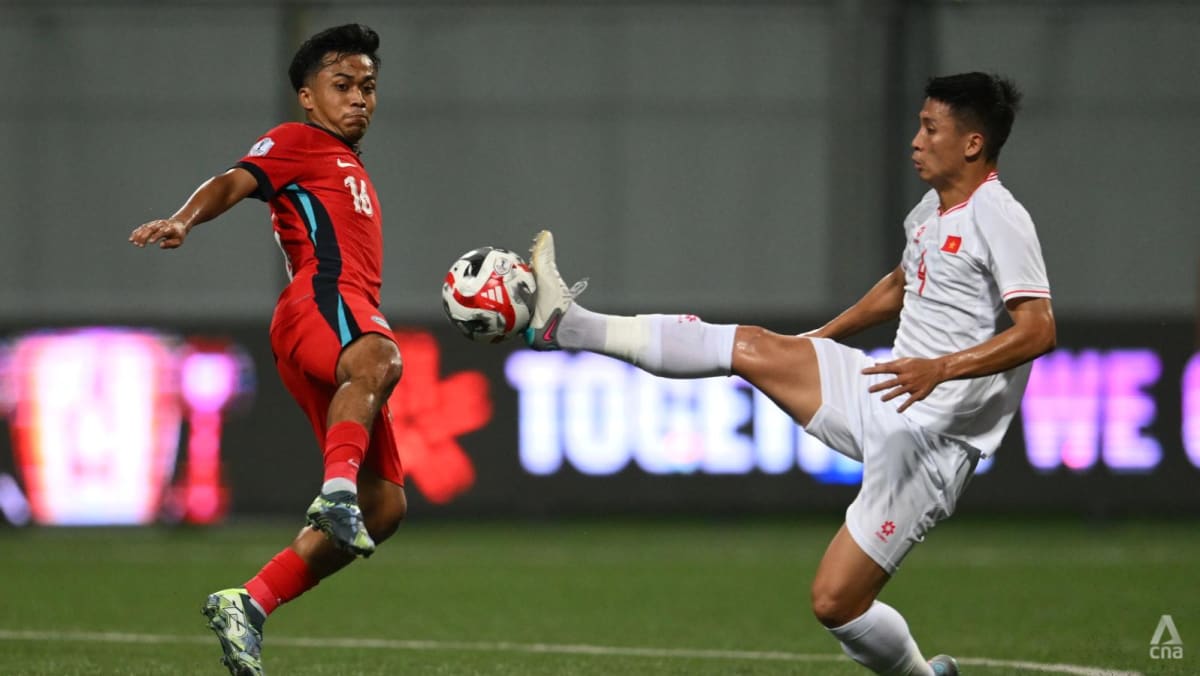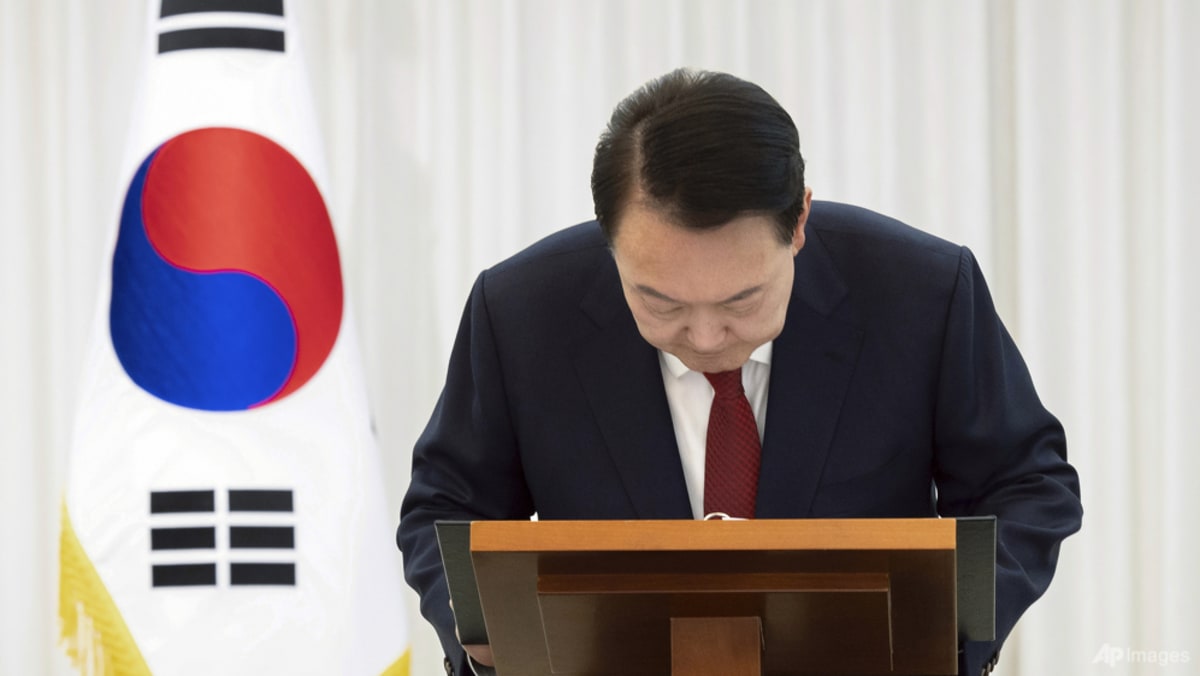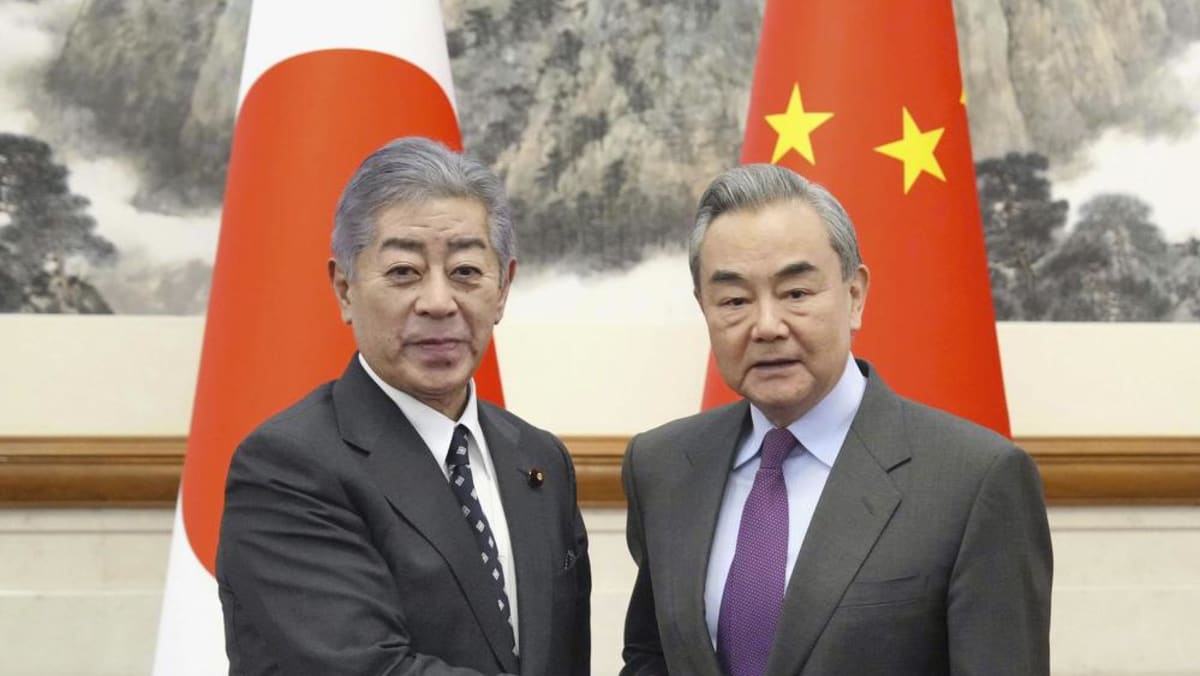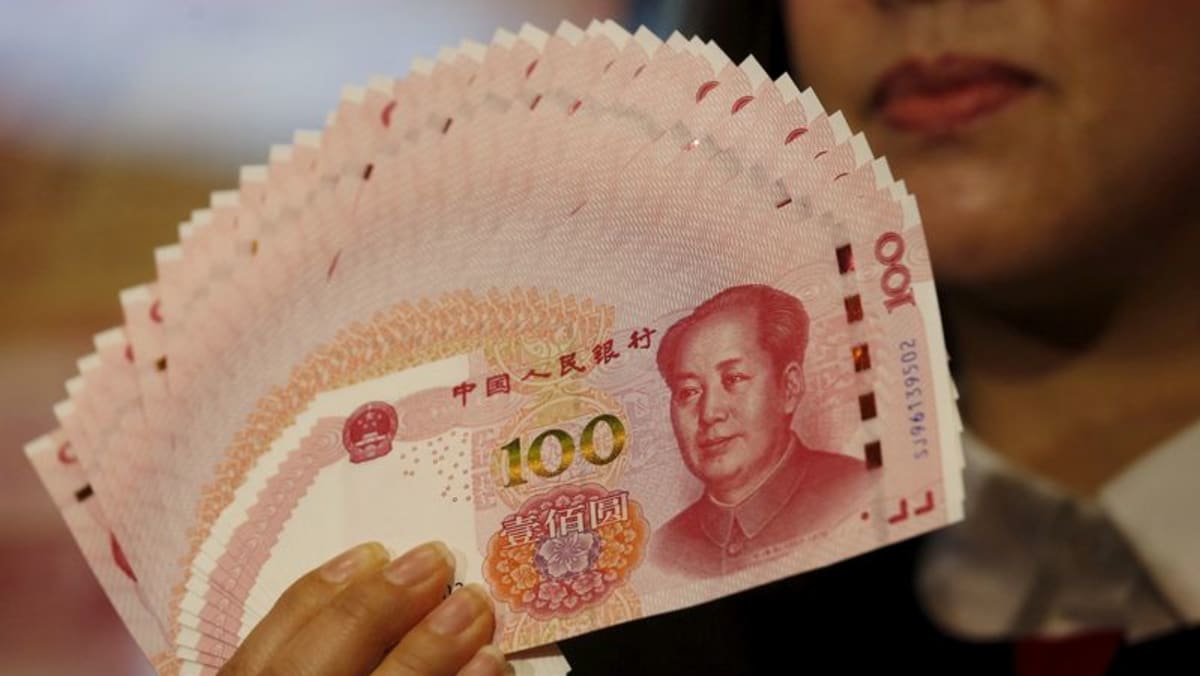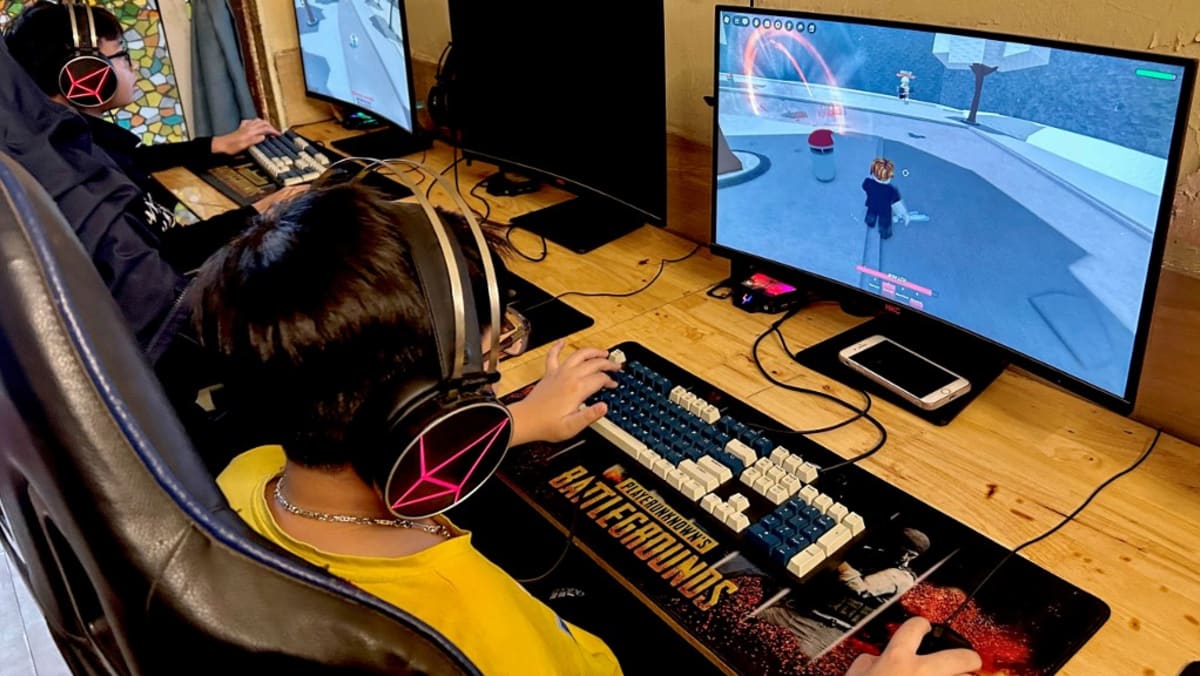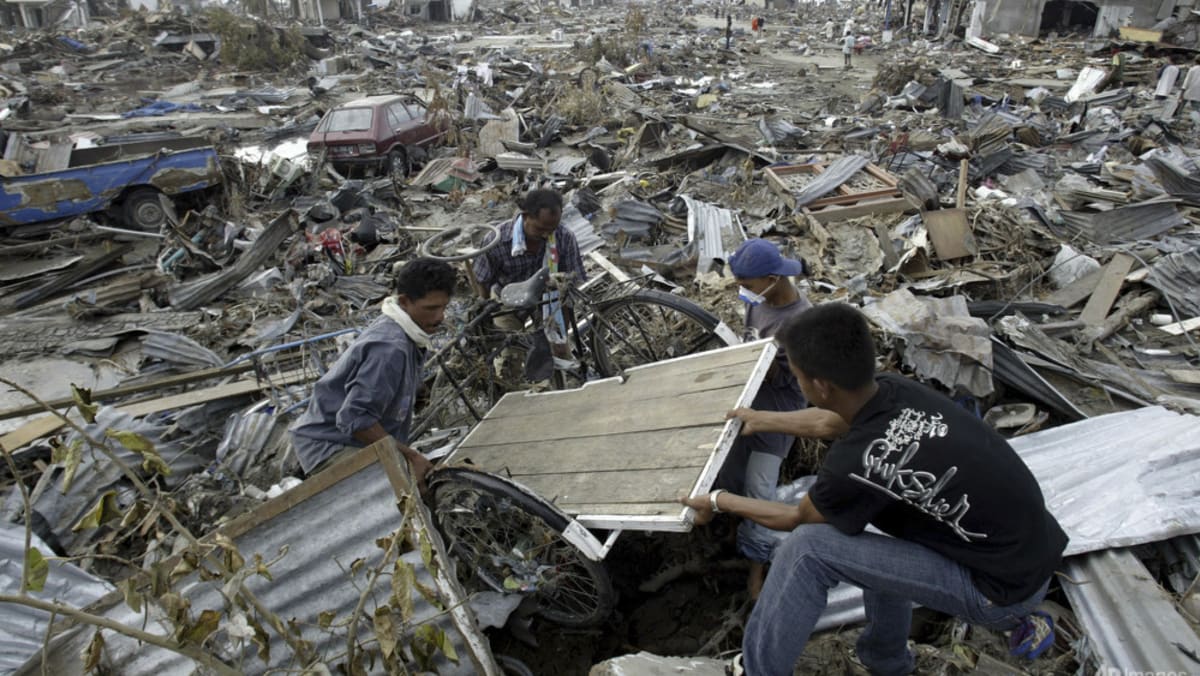Regional security concerns accelerated ties among Japan, South Korea, US: Analysts
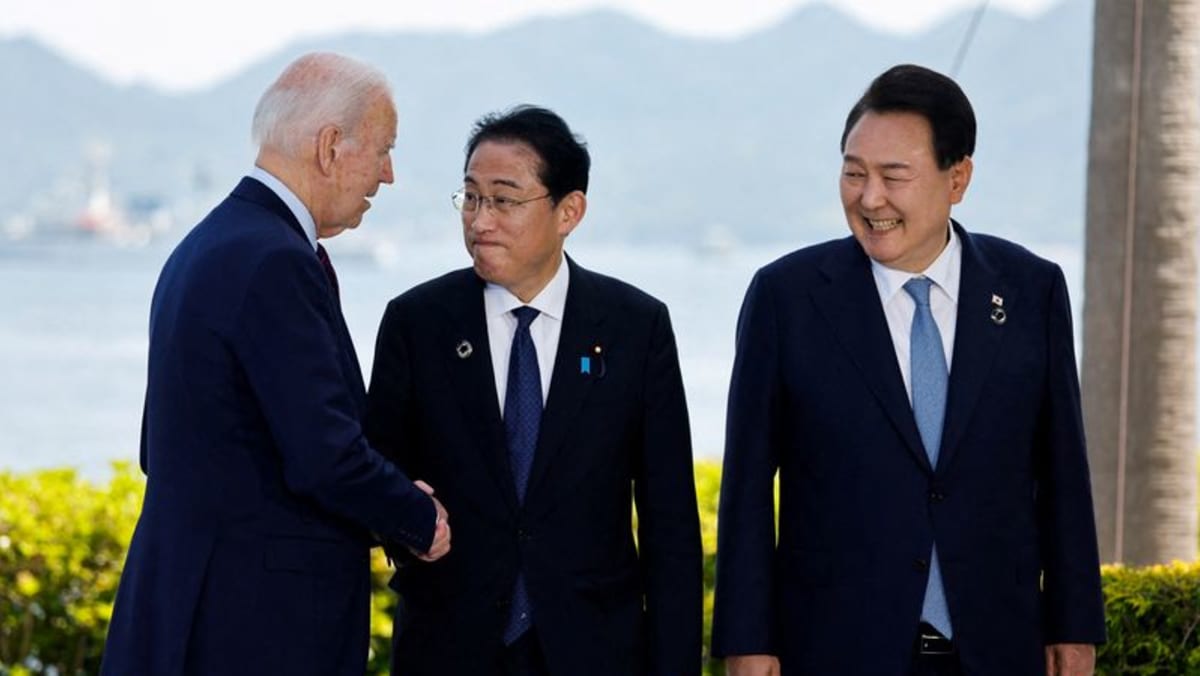
“This broad cooperation coming out of Camp David is not a formal alliance or a collective security, but it’s getting close to that step,” said Dr Patrick Cronin, Asia-Pacific Security chair at think tank Hudson Institute.
“If a war were to break out in the region, these three countries would be ready from day one to cooperate across a range of contingencies,” he told CNA938’s Asia First.
REGIONAL SECURITY COMPLICATIONS
The summit comes amid concerns over provocative behaviour from North Korea and perceived threats from a growing Chinese military and its activities in the South China Sea.
Dr Takuya Matsuda, research fellow at the Yokosuka Council on Asia-Pacific Studies, said that the improving relationship between Japan and South Korea, which has for decades been strained due to historical disputes, is mainly a by-product of China’s actions in the region.
He said the speed of warming ties came as a surprise to most Asia observers, who were not expecting so much progress in so little time.
“Chinese provocation inadvertently brought together Japan and South Korea, who would have had trouble getting on the same page just four or five years ago,” he told CNA’s Asia First.
He drew a parallel to Europe, where Sweden’s and Finland’s ascension to the North Atlantic Treaty Organization (NATO) was an effect of Russian President Vladimir Putin’s ongoing invasion of Ukraine.
“Provocation does invite others to unite together. When there are security challenges that jeopardise the security of countries in a region, that actually brings nations together in unexpected ways. This is why (the summit) is very historic and also a very promising development,” said Dr Matsuda.
Dr Cronin cited an incident earlier this month, when China’s coastguard fired a water cannon on Philippine vessels near a disputed shoal, as one such instance of Beijing flexing its muscle in the South China Sea.
“If China is going to intimidate and use force and coercion or economic statecraft against others, then they should expect this reaction,” he said, referring to the summit.
“The region is responding to China’s actions. We don’t want decoupling, but we’re going to have some protection, form some alliances, and have some security partnerships.”
JAPAN-SOUTH KOREA RELATIONSHIP
Japan’s shift away from its decades-long pacifist ideals have been in the spotlight in recent years as Tokyo struggles to strike a balance between the need for defence and its post-World War II constitutional restrictions on its military.
For South Korea, while North Korea remains a primary threat, Seoul has also begun to view China as a potential security issue.
“For example, a Taiwan contingency does not only affect Japan. South Korea’s tankers, vessels, and trade ships go through the Taiwan Strait. So if there’s a blockade over Taiwan, it will affect South Korea as well,” said Dr Matsuda.
“So, while China is more of a threat for Japan and the US, Seoul is also starting to feel the potential security challenge.”
These common security concerns have pushed the two major US treaty allies to work together.
While Japan needs South Korea as a partner for regional defence, Seoul also needs Tokyo to elevate its position on the world stage in order to play a global pivotal state role, said Dr Cronin.
This is one key priority for South Korean President Yoon, and he has made tremendous efforts to improve ties with Japan after he came into power last year, he added.
“(Yoon does not want to) simply focus on the North Korea problem. He wants to really try to have some muscle in the region and globally. So he needs a good relationship with Japan to deal with North Korea, and also as a bridge to deal with other regions of the world.”
WHY IS THE SUMMIT SIGNIFICANT?
Aside from Japan-South Korea ties, observers said the Camp David summit is also significant as it is a first step for the three countries to put in place a security framework.
It will also pave the way for their national security delegates to coordinate on regional matters more frequently, and establish a shared command and control structure.
“While they are well-prepared for deterrence in peacetime, they’re not as well-prepared as they need to be for a range of crises. The leaders need to align their policies and capabilities, and talk seriously about extended deterrence,” Dr Cronin said.
Source: CNA


